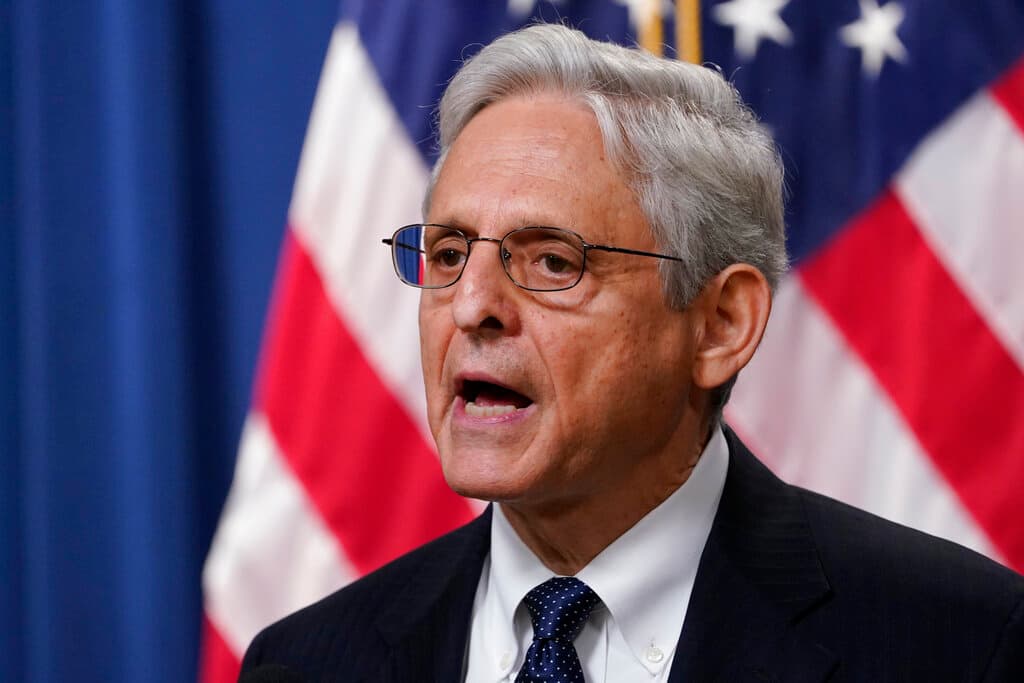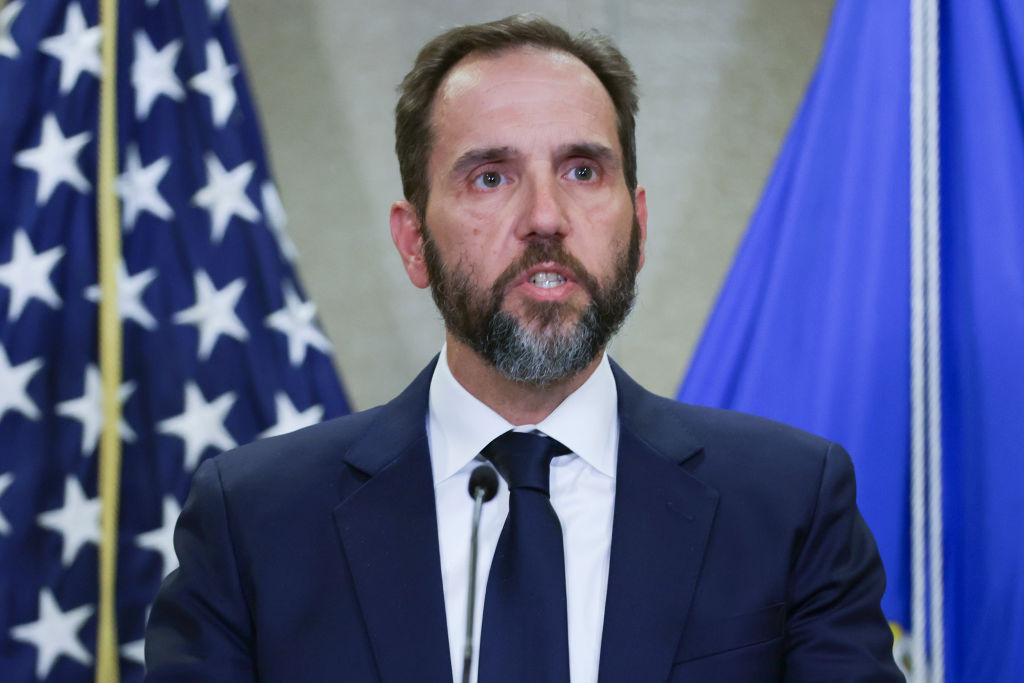Jack Smith and Merrick Garland Are Coming Under Escalating Scrutiny, but Are Undaunted in Pursuit of a Trump Conviction
A lawmaker from Florida, Matt Gaetz, is looking to ratchet up pressure on the special counsel.

Congressman Matt Gaetz’s letter to Attorney General Garland challenging the legal basis of Special Counsel Jack Smith’s prosecutions of President Trump underscores Mr. Smith’s fragile grip on his assignment.
In a signal of escalating scrutiny, the lawmaker from Florida dispatched on Monday a letter to General Garland requesting to know of “any written authorization issued between July 15, 2024 and the present enabling Mr. Smith and his office to their continue work.” That is when Judge Aileen Cannon ruled that the special counsel’s appointment was unlawful and dismissed the 40 charges against the 45th president.
On the day Judge Cannon’s ruling came down, Mr. Gaetz took to X to hail the Florida jurist, named to the bench by Trump in 2020, as “Future Supreme Court Justice Cannon.” Mr. Gatez in March called for the Department of Justice’s inspector general, Michael Horowitz, to investigate Mr. Smith for a “violation of Departmental rules” regarding election interference. Now, Mr. Smith is on even thinner ice after Judge Cannon’s ruling.
Mr. Gaetz requests that Mr. Garland provide “any Department of Justice directives, legal opinions, or regulations relied upon” in determining that Mr. Smith’s work is still valid. The Floridian reckons that the special counsel lacks the power to “provide services to the Department of Justice.” Mr. Gaetz also castigates the attorney general for approving Mr. Smith’s new January 6 indictment so close to the election.
Mr. Smith has appealed Judge Cannon’s dismissal of his Mar-a-Lago case to the 11th United States Appeals Circuit, which could overrule the jurist’s determination that Mr. Garland lacks constitutional or statutory bases to appoint Mr. Smith, who before becoming special counsel was trying war crimes at the Hague. He was never confirmed by the Senate. Judge Cannon also found his appointment violated the Constitution’s Appropriations Clause.
Mr. Garland, himself a former judge, told NBC News that he would never have “made such a basic mistake about the law” as he accuses Judge Cannon of committing. Her ruling, though, is law only in the Southern District of Florida, not nationwide. Trump also faces criminal charges in the District of Columbia, in the special counsel’s January 6 case.
Trump has written to the presiding judge in the election interference prosecution, Aileen Cannon, that he intends to “move to dismiss the Special Counsel’s improper appointment and use of non-appropriated funds” for a second time. For ballast, he cites Justice Clarence Thomas, who in oral arguments in the immunity case appeared to endorse Judge Cannon’s ruling that Mr. Smith’s “prosecution of this action breaches … structural cornerstones of our constitutional scheme.”

Mr. Gaetz’s letter, though, does not acknowledge Judge Cannon’s acknowledgment in her order dismissing the Mar-a-Lago case that her “Order is confined to this proceeding. The Court decides no other legal rights or claims.” Judge Chutkan, for her part, reckoned during oral arguments last week that she did not find her Florida counterparts reasoning “particularly impressive.”
The United States Court of Appeals for the District of Columbia Circuit, which oversees Judge Chutkan, has in the past ruled that attorneys general possess the ability to appoint subordinate prosecutors. They cite a Supreme Court case, United States v. Nixon, that Judge Cannon reckons is non-binding in respect of special counsels.
Mr. Gaetz’s request that Mr. Garland divulge who authorized Mr. Smith’s slimmed down indictment in the January 6 case appears aimed at uncovering the attorney general’s role in shepherding the cases against Trump. Before Mr. Smith secured the fresh charge sheet, he requested more time from Judge Chutkan, citing the need for “consultations with other components of the Justice Department,” which could have included Mr. Garland.
Not necessarily, though. The special counsel regulations mandate that the “Special Counsel shall determine whether and to what extent to inform or consult with the Attorney General,” meaning that it is possible that Mr. Smith decided to retool his indictment without the approval of Mr. Garland. Those same regulations, though, dictate that the “Attorney General may request that the Special Counsel provide an explanation for any investigative or prosecutorial step.” A new indictment likely would be such a step.

